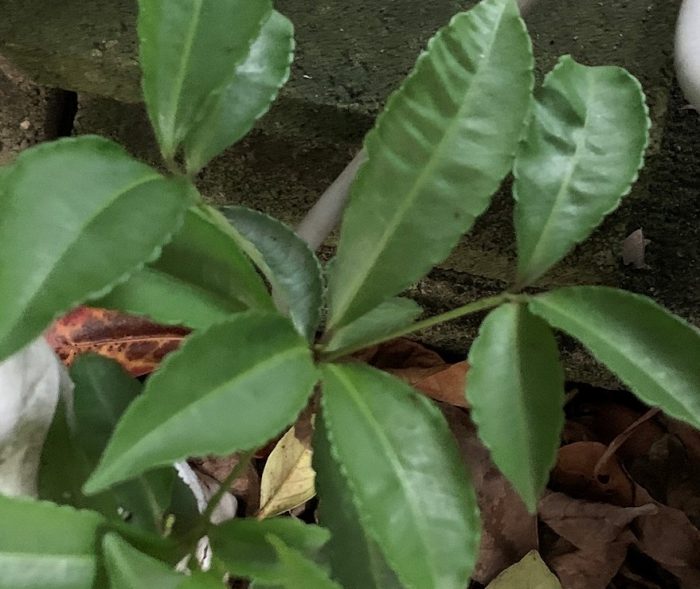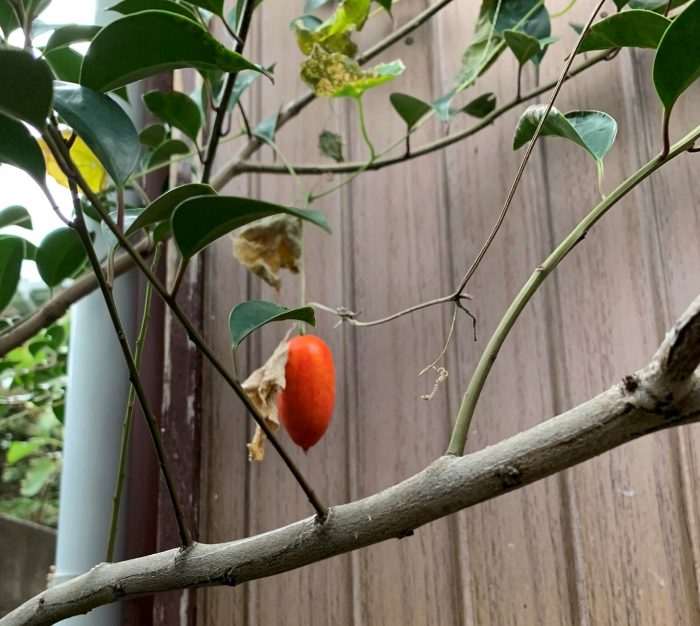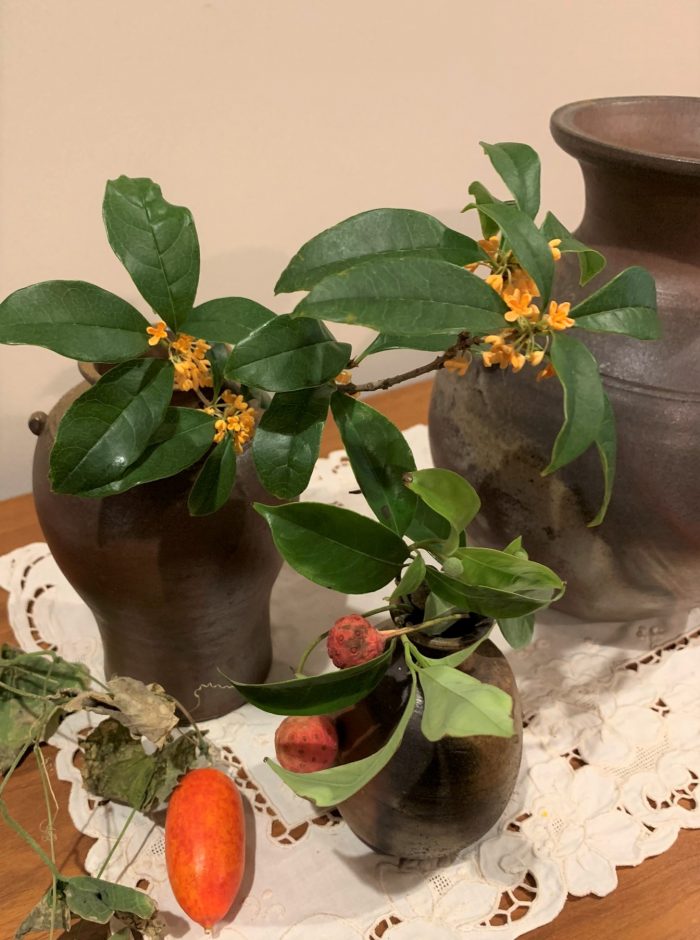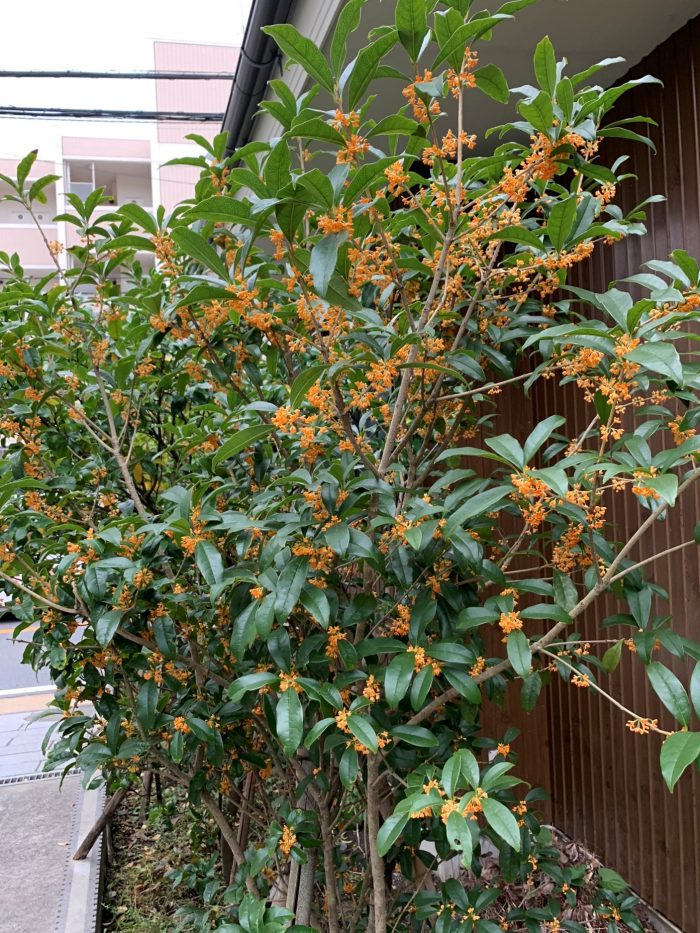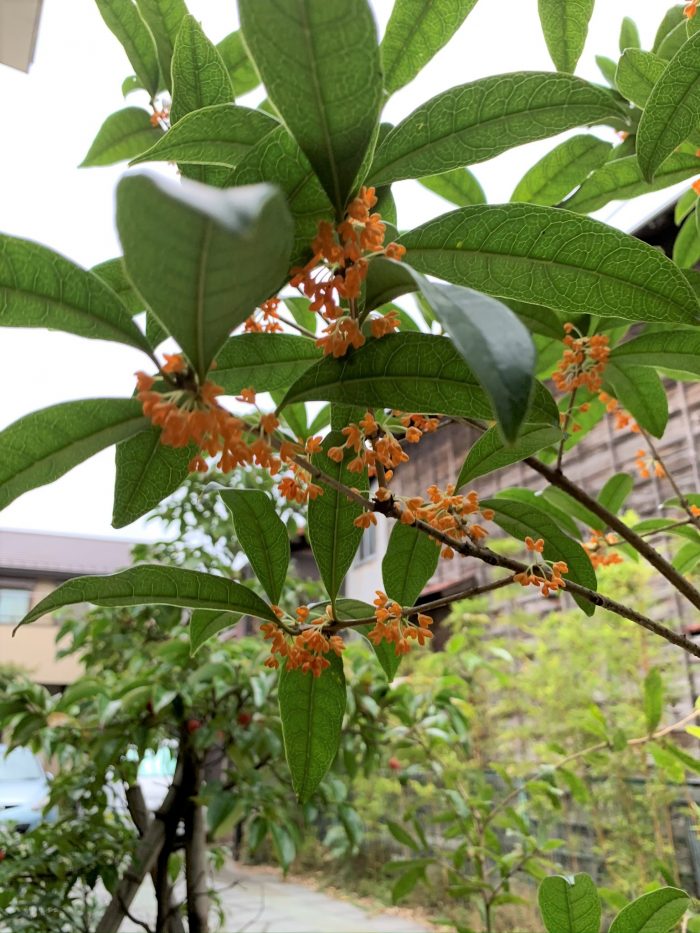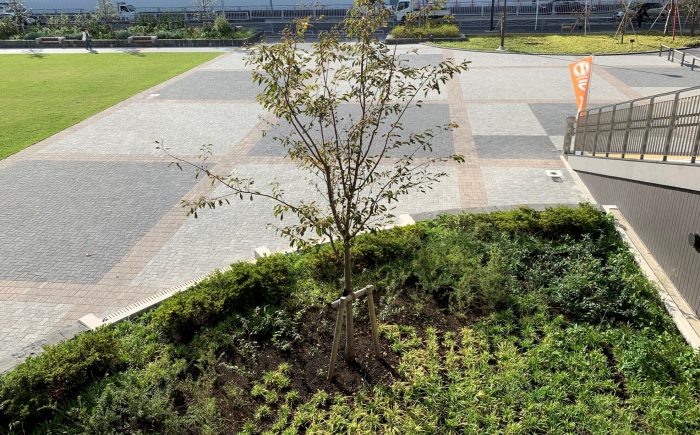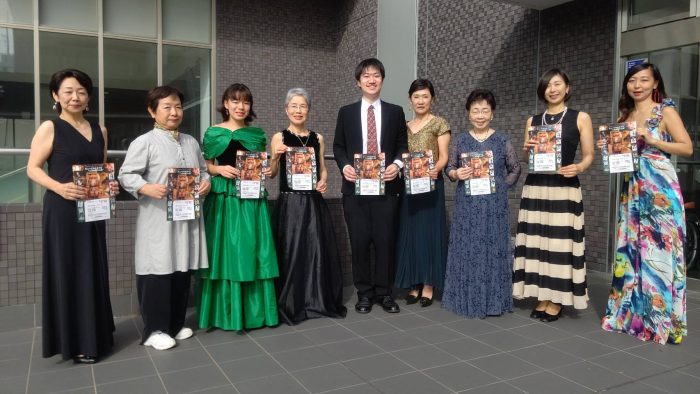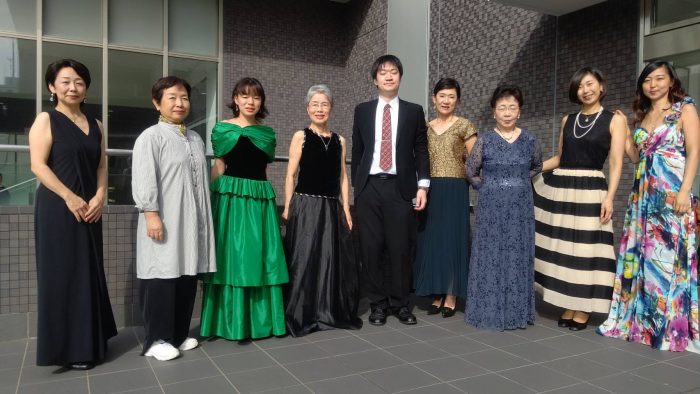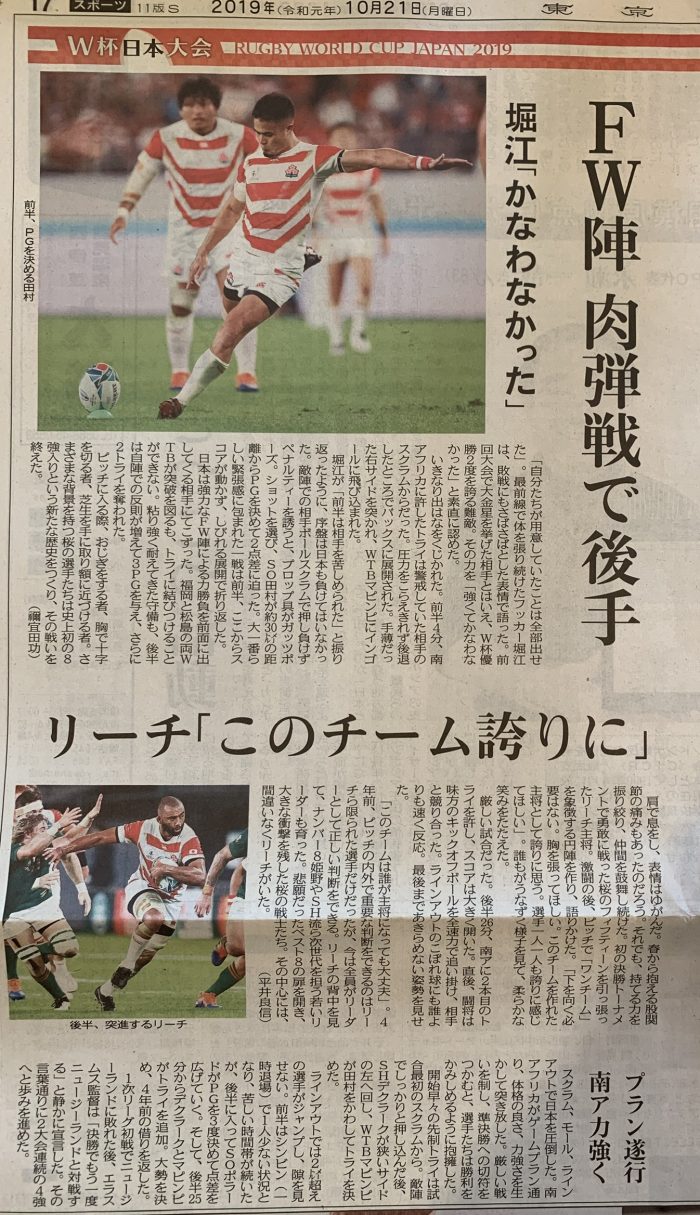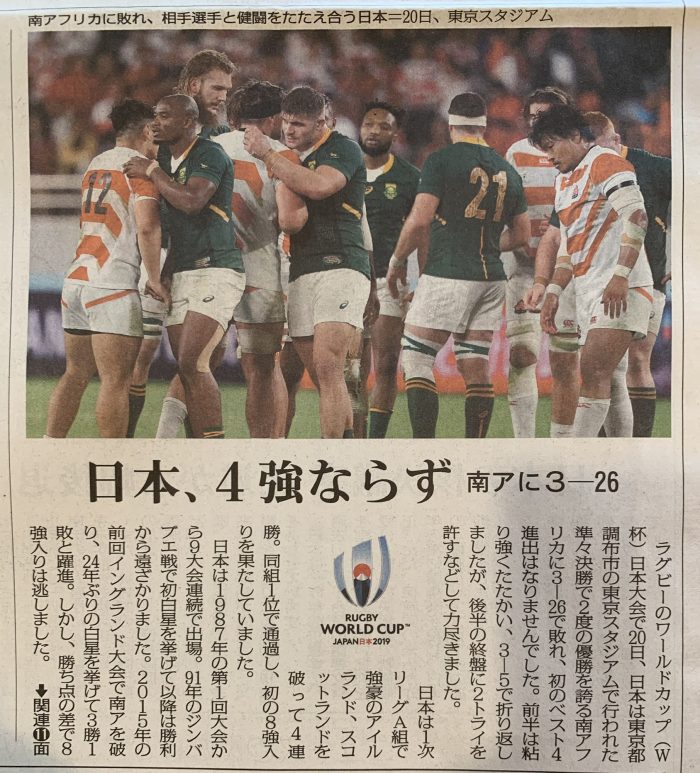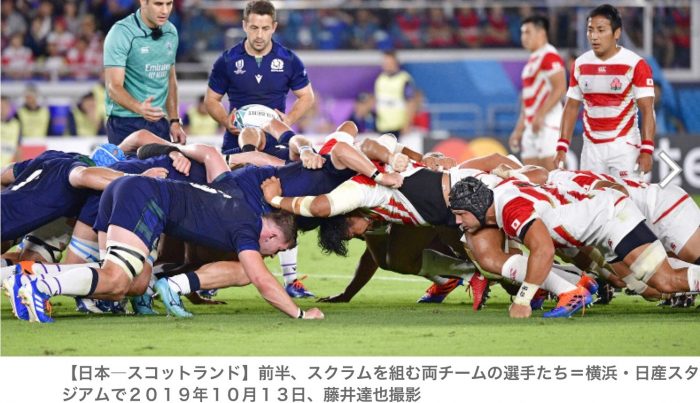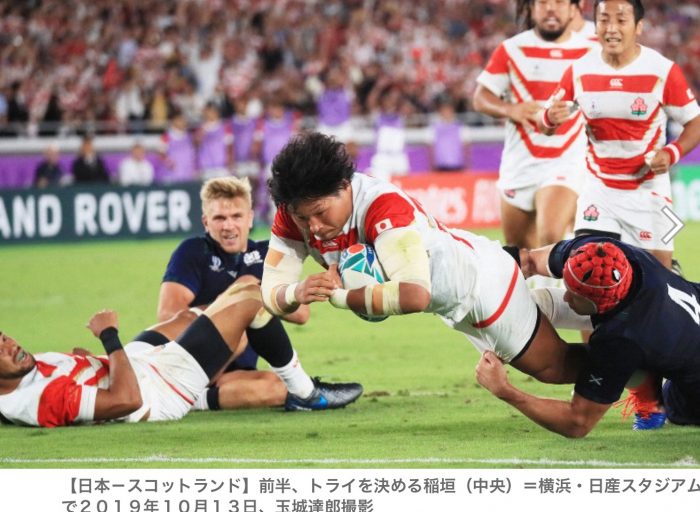キンモクセイの薫る北鎌倉の秋
北鎌倉の家のキンモクセイが一斉に咲き、香しい香りを一面に漂わせていた。秋の、甘く、少しツンと柑橘系のような香り。大好きな香り・・・
冬青には以前は小鳥がきていたけど、この頃はあまり見かけません。
その外にも雑草や庭木も。
すみれ会の‟前進”・演芸会
出演したのは 演奏会ではなく、演芸会だった。やや歌いにくいところには目をつぶって・・・。みんなで長く練習したから。それに、みんなで歌うのは楽しかったから。
「すみれの花咲く頃」「花の街」「つがるの故郷」の3曲を7人で。
<今年改築された金沢公会堂> 2階からの広々した眺め
Museの‟前進” Pre演奏会(「音楽のつどい」出演)
12/14公演の宣伝を兼ねて演奏。前日、当日ステージリハ-サルも調子が悪く「どうしよう」と思ったけど、外に出て練習(やる気になればできるのだ)。本番はみんなきっちり良く歌った。さすがレベルが高い集団だと今更ながら思った!良かった。
進撃止まる、でも前進した!
Best 4 は逃したけど立派に頑張った。姫野の涙、美しかった。Lieth Michael, 具さん、稲垣、堀江、中村、そのほかにもすばらしい選手がいっぱいいた。今日は松島、福岡の華麗なプレーが封じられた。南アは強かった。イングランド、NZはもっと強い。まだ楽しみは続く・・・。(我ながら、なんという幼稚で杜撰で下手な文章!)



プロップは、稲垣啓太選手(29)とグ・ジウォン選手(25)。
フッカーは、堀江翔太選手(33)。
ロックは、トンプソン ルーク選手(38)とジェームス・ムーア選手(26)。
フランカーは、キャプテンのリーチ マイケル選手(31)とピーター・ラブスカフニ選手(30)。
ナンバー8は、姫野和樹選手(25)。
バックスです。
スクラムハーフは、流大選手(27)。
スタンドオフは、田村優選手(30)。
ウイングは、福岡堅樹選手(27)と松島幸太朗選手(26)。
センターは、中村亮土選手(28)とラファエレ ティモシー選手(28)。
フルバックは、山中亮平選手(31)。
控えの8人は、坂手淳史選手(26)、中島イシレリ選手(30)、ヴァル アサエリ愛選手(30)、ヴィンピー・ファンデルヴァルト選手(30)、アマナキ・レレイ・マフィ選手(29)、田中史朗選手(34)、松田力也選手(25)、レメキ ロマノ ラヴァ選手(30)です。

奇跡の進撃, Brave Bloosoms! ☆3
あれよ、あれよという間にスコットランドも打ち破り、”念願の”Best 8ならぬ「優勝するつもり」との選手の言葉も、あながちも虚言とか単なる願望とか「目標」ではなく、実現の可能性5%ぐらいはあるのでは?と思わせる快進撃。スコットランド戦では、フランカー稲垣が、いるはずのない(?)ウィングの位置にドドドドッと走ってきて、あろうことか見事に相手方の裏をかいてTRYした!見ている方も、たぶん本人もメンバーも、もちろん外国メディアもびっくりした。素晴らしかった。あとは、もちろん KENKI 福岡の、あっという間のボール奪取とそのあとのフルスピード・ランと美しいTRYも見事のひとこと。
Rugby World Cup: One man’s search into Japan’s mysterious rugby past
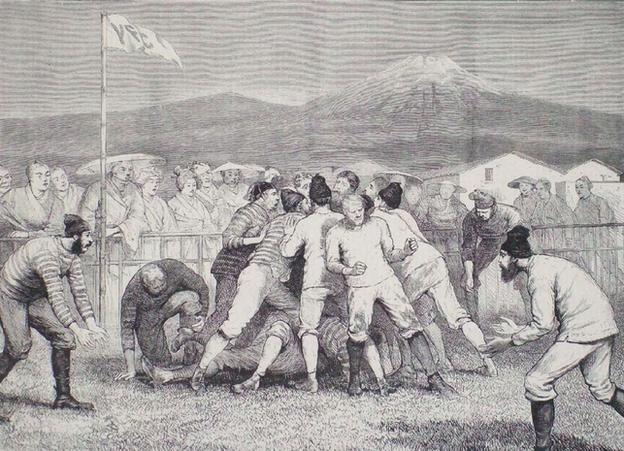
Japan 28-21 Scotland: Gregor Townsend’s side out of Rugby World Cup
By Tom English BBC Scotland at International Stadium Yokohama
Japan v Scotland
Japan are in the quarter-finals for the first time after ending their seven-game losing run against Scotland
2019 Rugby World Cup Pool A: Japan v Scotland
Japan: (21) 28
Tries: Matsushima, Inagaki, Fukuoka (2) Con: Tamura (4)
Scotland: (7) 21
Tries: Russell, Nel, Fagerson Con: Laidlaw (2), Russell
Scotland crashed out of the Rugby World Cup at the pool stage for only the second time after being beaten by an irrepressible (impossible to repress, restrain, or control) Japan in Yokohama.
Gregor Townsend’s side needed four more points than the hosts but, despite leading through Finn Russell’s try and mounting a comeback, they fell short.
Kotaro Matsushima, Keita Inagaki and Kenki Fukuoka all crossed before half-time, before the latter blasted over again to secure Japan’s maiden quarter-final – against South Africa in Tokyo on Sunday. Scotland, forced to go for broke in a febrile contest that had been in doubt until about 03:00 BST because of the effects of Typhoon Hagibis, scored through WP Nel and Zander Fagerson after the break.
But that second-half rally was not enough to prevent a first defeat at the hands of the Brave Blossoms in eight Tests. The result also means Ireland finish runners-up in Pool A and will face New Zealand in the last eight in Tokyo on Saturday.
‘Japan were relentless and magnificent’
After a horrendous Saturday that brought death and destruction, it was a minor miracle the game went ahead in the first place, a roaring tribute to the people responsible for clean-up after Hagibis battered this area 24 hours earlier.
There was a moment’s silence for the stricken in a stadium that heaved with emotion and power. The home national anthem was haunting and ominous, a moment of foreboding for Scotland. The visitors had hoped that the sense of occasion might get to the hosts, that the pressure would grind them down as they pushed for a quarter-final against the Springboks next weekend. So much for that tin-pot theory. In their minutes of total dominance, before Scotland came roaring back, Japan were a full of invention and pace. Their accuracy while playing at full throttle was astounding. Every Scotland mistake was punished. It was absolutely relentless. And magnificent.
What a game this was. What an occasion. The Scots had a great start, which was played at bewildering pace. Russell’s cross-kick and Magnus Bradbury’s follow-up created the opportunity and Russell, having started it, then finished it with a hand-off of Yutaka Nagare to score. It was probably the only less-than-perfect moment that scrum-half Nagare delivered all night. Japan took over at that point. They lorded it over possession, whipped left and right and down the middle. Jamie Ritchie, playing utterly heroically, kept them out on 10 minutes with a terrific turnover near his own line, but that respite was short.
Before the end of the first quarter, Japan got their reward when attacking up the left through the wonderful Fukuoka, who eluded Chris Harris and drew in Stuart Hogg before chucking a one-handed offload to Matsushima to gallop away to the posts. Yu Tamura converted and the home crowd erupted.
More Japan heat and more Japan brilliance. Their second try was an epic, a thing of rugby wonder. Matsushima burst through Grant Gilchrist and Blade Thomson and away he went. What happened next was wondrous. Five sets of hands offloaded at speed as if they were on a training run. Nagare, Tamura and Shota Horie worked it to James Moore. The lock flicked it on to William Tupou, who spun and got it to Inagaki for the last act. Sheer genius, pure and simple. The conversion made it 14-7, then just before the break came the try that looked like sending Scotland heading home. Timothy Lafaele grubbered in behind and Fukuoka seized on it to get Japan’s third try. Two more points from Tamura made it 21-7 at half-time. Scotland were on the floor.
‘Huge moment for incredible country’
Three minutes into the second half, Japan scored again. Fukuoka ripped it from Harris and, when the ball went spinning in the air after contact, the wing caught it and sprinted off to score. Tamura made it 28-7. A rout. Or so it seemed. Scotland needed the kind of miracle they produced at Twickenham in March. When Nel grunted his way over the line to narrow the gap, Laidlaw’s conversion made it a 14-point game. Scotland were still a mile off their target. The bench got busy. Six of them came on at once – and Scotland scored again.
Hogg began it, there was a lovely one-two between the immense Jonny Gray and Scott Cummings, Gray running on and feeding Fagerson, who thumped his way through Horie to get the ball down. Russell banged over the extras this time. Seven points in it now. Still a mountain to climb, but this was pulsating stuff.
Japan were denied after another turnover by the towering Ritchie, then they asked their own questions again. It was Scottish pressure now. Chasing two converted tries and a penalty or drop goal they had to take risks, had to force the issue, had to make sure that every pass stuck, every attack counted. They owned the ball in the closing minutes, but Japan’s defence was unbreakable. Their crowd roared and roared and roared again. Scotland were not going to get the points they needed now. There was no time. For them, the battle was all about getting another try and a conversion and a draw. They bust a gut but Japan would not let them through.
When they turned over that last Scottish raid the acclaim of the home support was deafening. A huge moment for this incredible country, a huge moment for this World Cup. Scotland are heading home. Japan? Who knows how far they’re heading. Further than they’ve ever gone before, that’s for sure.
Rugby World Cup: Things we love about the tournament in Japan
From the sectionRugby Union

In case you haven’t heard, the Rugby World Cup is in Asia for the first time. Taking place in Japan, the tournament feels completely different to its predecessors and both foreign and Japanese fans have been revelling in it. There are many things to love about a World Cup out east, some of which were expected and some which have come as a welcome surprise. But after a bit of discussion, the BBC Sport team in Japan have settled on what they love most.
The unpredictability
BBC rugby union correspondent Chris Jones
You never quite know what you are going to get in Japan. It is never boring; and always fun. For example, the weather seems impossible to predict – any given day could be a combination of perfect sunshine or torrential storms – while at breakfast one needs to be prepared to eat anything from rare beef to fish stew to donuts and cakes. And for such polite and reserved people, the Japanese also absolutely love letting their hair down by getting stuck into good food and good drink – often in a karaoke booth.
The upsets
BBC chief sports writer Tom Fordyce
Every World Cup needs a result in the group stages that shakes up the established order, that messes with the predictions you may have made on your wallchart and keeps you watching other matches that you might otherwise assume to be dead certs. In 2007, you had Fiji beating Wales. In 2011, you had Tonga upsetting France, and in 2015 you had Japan’s famous victory over South Africa. What this World Cup is delivering is not just an isolated one-off but – maybe – a story that could kick on and on. Should hosts Japan make it through to the knock-out stages for the first time in their history, it would be devastating for Scotland but remarkable for the wider tournament. Other tier-two nations have struggled, and that should be a concern for World Rugby. To have the host nation in the last eight would cover up a number of those wider issues.

The Japanese fans
BBC Radio 5 Live rugby union producer Louise Gwilliam
The enthusiasm of the Japanese fans for this World Cup has been like no other tournament I’ve ever been to. Not only do they buy the shirt of every team they go and see (imagine hundreds of Japanese fans in full Namibia kit, backpack and all) they have also learnt the words to every national anthem and sing them with as much pride as passionate Argentines, crying Frenchmen and women and multi-lingual South Africans.
The language
Former England fly-half and BBC Radio 5 Live pundit Paul Grayson
Never have so few words in a native tongue elicited such a warm response. I know how to say about six things in Japanese covering a huge range of topics from hello to sorry and all the way to excuse me. The response to these attempts is pure joy from the recipient and then they politely speak to you in Japanese after which you nod and smile and point at stuff. You feel welcomed and foreign all at the same time. Loud English gets you nowhere here and that’s absolutely as it should be.
The respect
BBC Sport journalist Becky Grey
Japanese society has a lot to teach us about respect. Trains are plastered with signs reminding travellers not to use their phones on-board and on match days there are announcements in English telling fans not to “cause any discomfort” for their fellow passengers. The high value placed on respecting others has translated onto the pitch too. Teams have stayed out on the field after full-time to go round and bow to every side of the stadium, as is the Japanese custom when thanking someone. And there’s been plenty of respect between teams behind the scenes. After thrashing them 63-0, reigning champions New Zealand invited Canada into their dressing room for a few post-match beers.
The rules
BBC Radio 5 Live rugby union producer Louise Gwilliam
The Japanese love a rule, and there’s absolutely no deviating from them, but it makes life in Japan really quite pleasant and easy. Everyone waits at the crossings for the green man, even on back streets with no-one around. There are signs painted on the floor of where to queue on train platforms and no-one ever pushes in. Trains are always on time, and when over a minute late you get a public apology. Lastly, shoes must be taken off inside, no outdoor shoes are allowed in gyms and caps must be worn by everyone in the swimming pools.
The hosts
BBC Radio 5 Live commentator Gareth Lewis

My favourite personal moment so far was being presented with a jar of marmite in a little bar-cum-restaurant in Tokyo. We had popped in there to watch the England v USA game and had deliberately chosen a place with no westerners. After pretty much everyone had had a go at their English, the bar owner was so excited to have British guests that he produced a tiny jar of marmite from behind the counter and made us pose for pictures with it. And as for the rugby… I am not counting my chickens or making any predictions, but to see Wales beat Australia at a World Cup for the first time in 32 years – at last – was pretty special.
I’m not quiet when I watch games at home on the TV and tend to live every pass, kick and moment of unbearable tension. To let all that out by commentating on the game itself was an unforgettable experience. I’ve just about left another level to get up to in case Wales go on and do something special.
奇跡の進撃なるか?Brave Bloosoms! ☆1
奇跡の進撃なるか? Brave Bloosoms! ☆2





